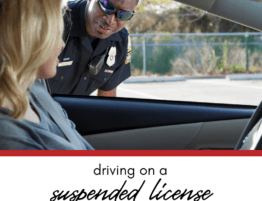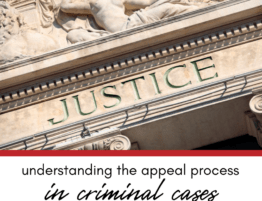
Finding yourself in a situation where you’re being pursued by the police can be stressful and confusing. You might think that running away could solve your problems, but in Illinois, this action might cause you more legal trouble. Understanding the law can help you make better decisions. Let’s dive into the specifics of what happens when you run from the police in Illinois.
What Happens if You Run From Police in Illinois?
In Illinois, evading or fleeing from the police is considered a serious offense, especially if it involves a vehicle. So, what should you expect if you’ve been charged with this crime? In this guide, we’ll explore:
- Understanding the charge
- After your arrest
- Hiring a criminal defense lawyer
- Preparing for trial
- FAQ about running from police
Here’s a closer look at each.
Understanding the Charge
If you run from police in Illinois, you can be charged with a misdemeanor or felony, depending on the circumstances. The charge usually escalates to a felony if you used a vehicle and caused harm to others. Knowledge is power – understanding the specifics of your charge can help you and your attorney strategize your defense.
Related: How to choose the right criminal defense lawyer in Chicago
After Your Arrest
If you’re arrested, remember that you have the right to remain silent and the right to an attorney. Use these rights wisely. It’s usually best to avoid making statements without your lawyer present. As soon as possible, request to speak with your attorney, and don’t answer any police questions until they arrive.
Hiring a Criminal Defense Lawyer
Securing the services of an experienced criminal defense lawyer is crucial. They can guide you through the legal process, advocate for your rights, and work towards the most favorable outcome. When choosing a lawyer, look for someone who specializes in your type of case and has a track record of success. Don’t be shy about asking questions regarding their experience, strategy, and fees.
Related: What happens if you’re charged with battery in Illinois?
Preparing for Trial
Preparation is key when it comes to trial. Your lawyer will assist you in gathering evidence, identifying witnesses, and forming a defense strategy. They’ll also help familiarize you with courtroom procedures and what to expect during the trial. It’s crucial to remember that it’s the prosecution’s job to prove you’re guilty beyond a reasonable doubt. Your lawyer will work to challenge their evidence and create doubt wherever possible.
FAQ About Running From Police
Check out these commonly asked questions about Running From Police. If you don’t see the answers here, please call our office, and we’ll provide the information you need.
What are the penalties for running from police in Illinois?
Running on foot can lead to a misdemeanor charge, with potential penalties of up to a year in jail. If you flee in a vehicle, it can be a felony, carrying a sentence of one to six years.
Can charges for running from police be dropped?
Yes, charges can be dropped if your lawyer can prove that the police acted unlawfully or if they can find other holes in the prosecution’s case.
Related: How a DUI conviction in Illinois can ruin your life
What should I do if I’m arrested for running from police?
Stay calm, remain silent, and request an attorney. It’s essential not to make any statements without your lawyer present.
Can I resist if the arrest is unlawful?
Resisting an unlawful arrest can lead to additional charges. It’s generally safer to comply and then contest the legality of the arrest with your attorney’s help.
Does running from police mean I’m guilty?
Not necessarily. Everyone is presumed innocent until proven guilty. Running from police may be used as evidence, but the prosecution must still prove their case beyond a reasonable doubt. Remember, though, you’re not allowed to run from the police; it can result in a whole new criminal charge.
Related: What are the consequences of shoplifting in Illinois?
Do You Need to Talk to an Attorney?
If you’ve been accused of a crime, we may be able to help you – and don’t worry: It’s completely confidential. Call us at 847-920-4540 or fill out the form below to schedule your free, private consultation with an experienced and skilled Chicago criminal defense attorney now.
Contact Us
"*" indicates required fields









